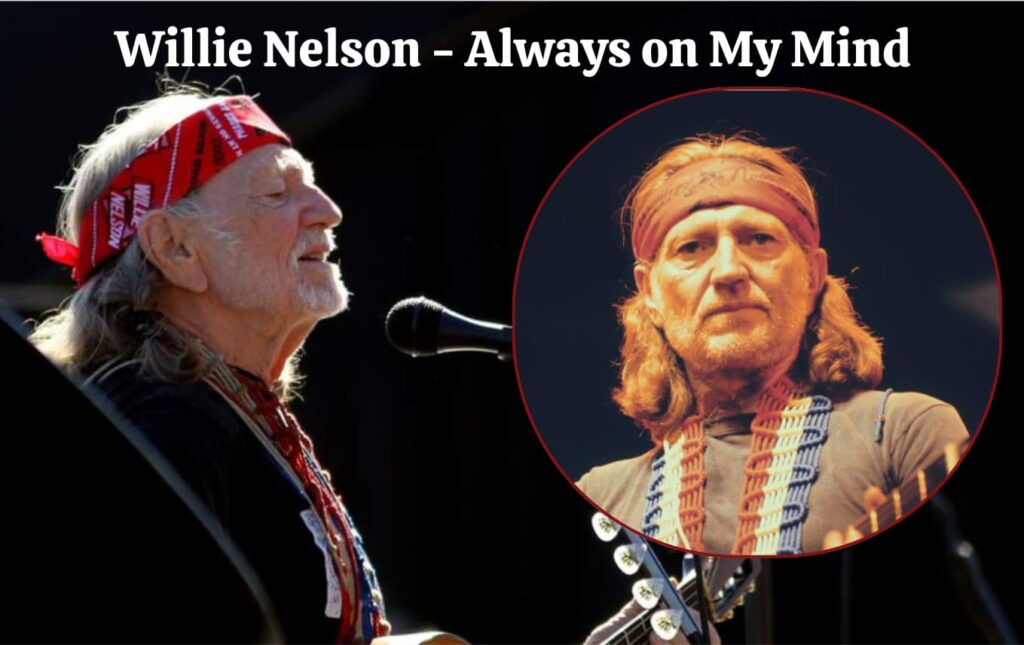
A Timeless Lament of Love and Regret
For those of us who have lived a few decades, who have loved, lost, and perhaps even longed for a second chance, certain songs resonate with a profound and almost visceral familiarity. They are the soundtracks to our memories, the echoes of our past, and the gentle reminders of emotions that time can never truly erase. Among these cherished musical touchstones, few shine as brightly, or cut as deeply, as Willie Nelson‘s iconic rendition of “Always on My Mind.”
When this mournful yet tender ballad drifted onto the airwaves in early 1982, it wasn’t just another country song; it was a revelation. It soared up the charts, becoming an immediate and undeniable phenomenon. On the Billboard Hot Country Singles chart, it spent an impressive two weeks at the coveted No. 1 position, a testament to its widespread appeal and emotional grip on the American public. But its reach extended far beyond the country music faithful. “Always on My Mind” also crossed over into the mainstream, peaking at No. 5 on the Billboard Hot 100, a rare feat for a country single at the time. Furthermore, it found success internationally, particularly in Canada, where it also topped the country charts and reached the top 10 on the pop charts. The song’s accompanying album, also titled “Always on My Mind,” was equally successful, topping the Billboard Top Country Albums chart for 22 weeks and even reaching No. 2 on the Billboard 200, showcasing its immense crossover appeal.
The story behind this song is as rich and layered as the emotions it evokes. While Willie Nelson made it an anthem, “Always on My Mind” wasn’t originally his. It was first recorded by Brenda Lee in 1972, then famously covered by Elvis Presley later that same year. However, it was Nelson’s interpretation, released a full decade after its initial conception, that truly etched the song into the annals of music history. His version, stripped bare of excessive instrumentation, delivered with that unmistakable, world-weary voice, transformed it from a mere pop song into a poignant meditation on regret, forgiveness, and enduring love.
The true genius of Nelson’s take lies in its understated brilliance. He didn’t just sing the words; he lived them. His gravelly voice, with its inherent vulnerability, perfectly conveyed the narrator’s lament: a man acknowledging his past failings, his unintentional neglect, and yet, ultimately affirming an unwavering love that has always been, and always will be, present in his heart. The lyrics, simple yet profound, speak to the universal human experience of taking things for granted, of realizing the depth of one’s feelings only when faced with the potential loss of what is truly cherished. “Maybe I didn’t treat you quite as good as I should have,” he croons, a line that has undoubtedly resonated with countless listeners who have wished they could turn back time.
For many of us, this song isn’t just about romantic love. It’s about missed opportunities, unspoken words, and the quiet regrets that accumulate over a lifetime. It’s about the relationships we’ve neglected, the apologies we should have offered, and the appreciation we failed to express. It’s a bittersweet reminder that while time marches on, some connections, some emotions, and some people truly are “always on our mind,” even when we haven’t outwardly shown it. It’s a song that invites introspection, a gentle nudge to cherish what we have before it slips away, and a comforting assurance that even when we stumble, love, in its purest form, can often endure. And for that, we owe a debt of gratitude to Willie Nelson, who, with his masterful rendition, gave us a song that continues to touch our souls, year after year, reminding us of the enduring power of a love that is, indeed, always on our mind.